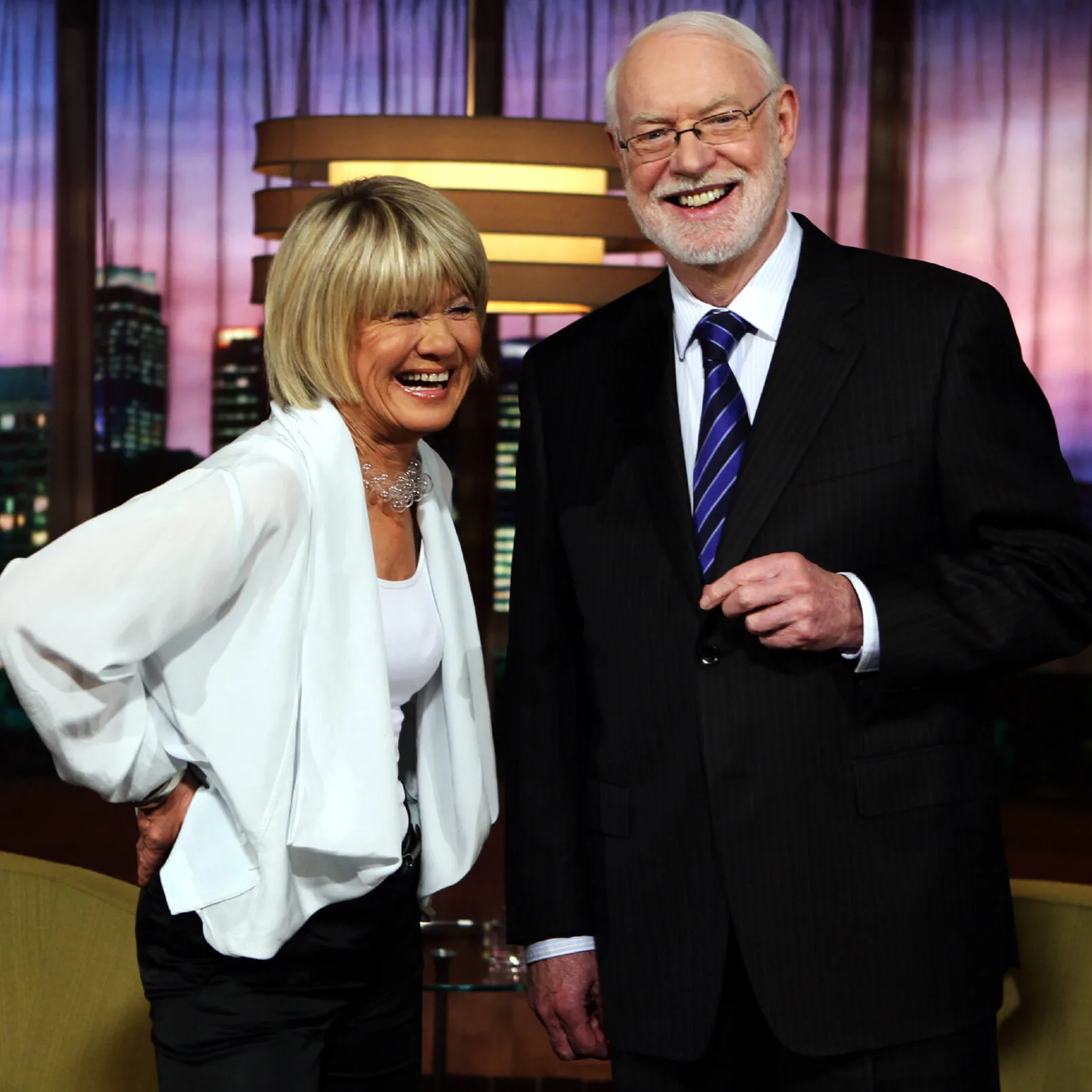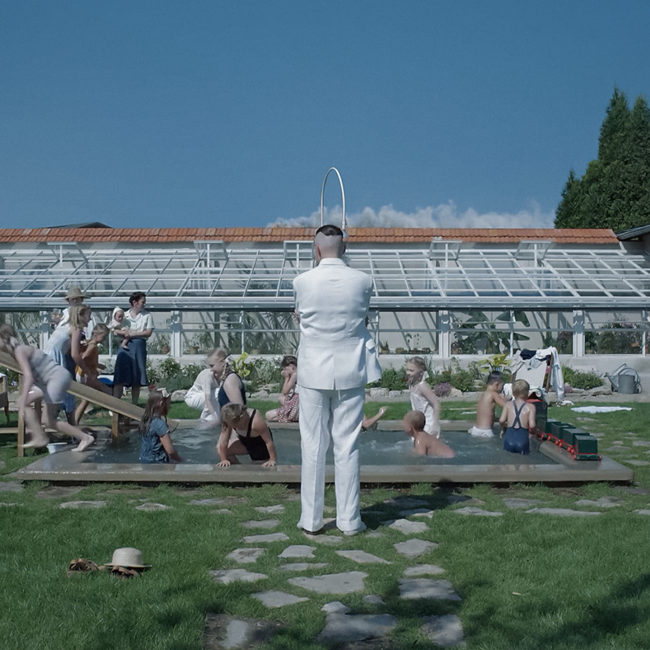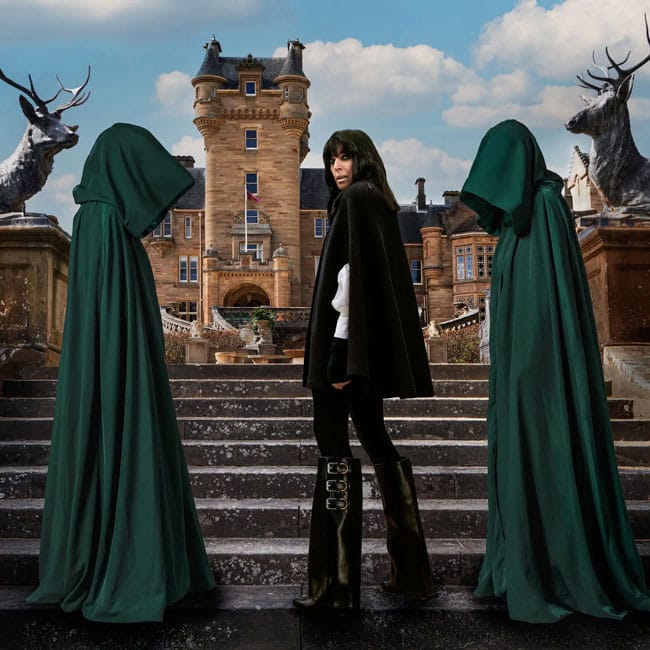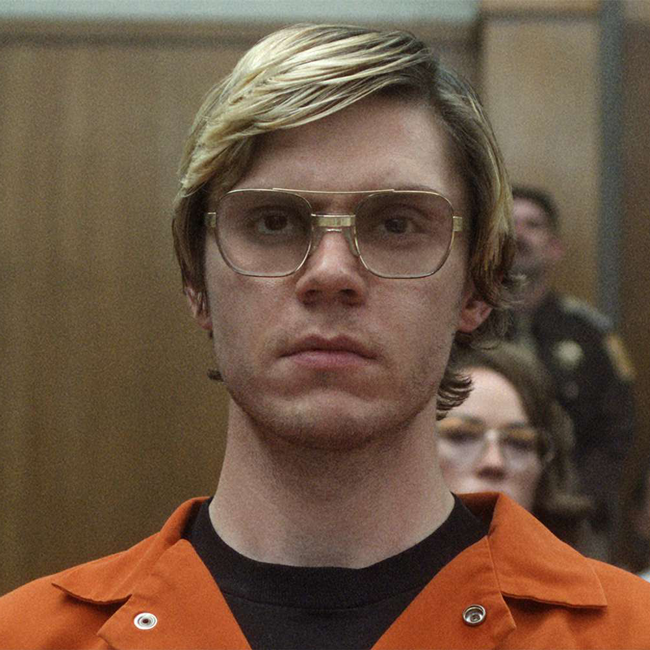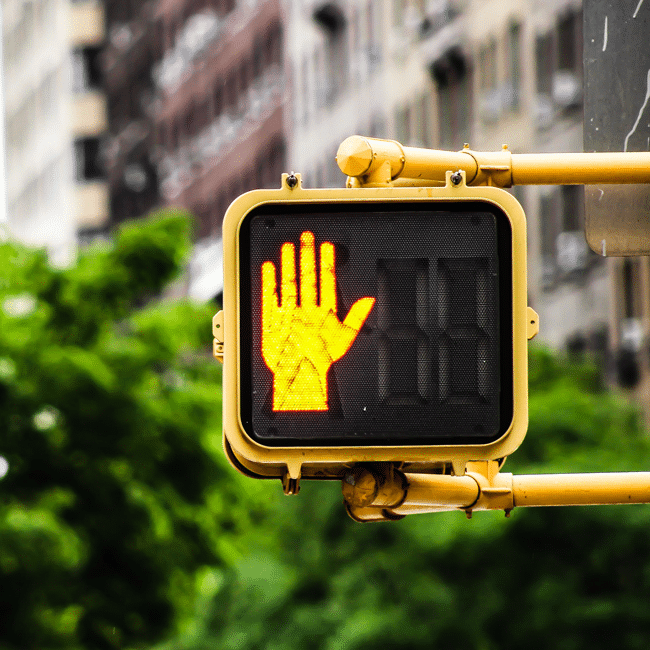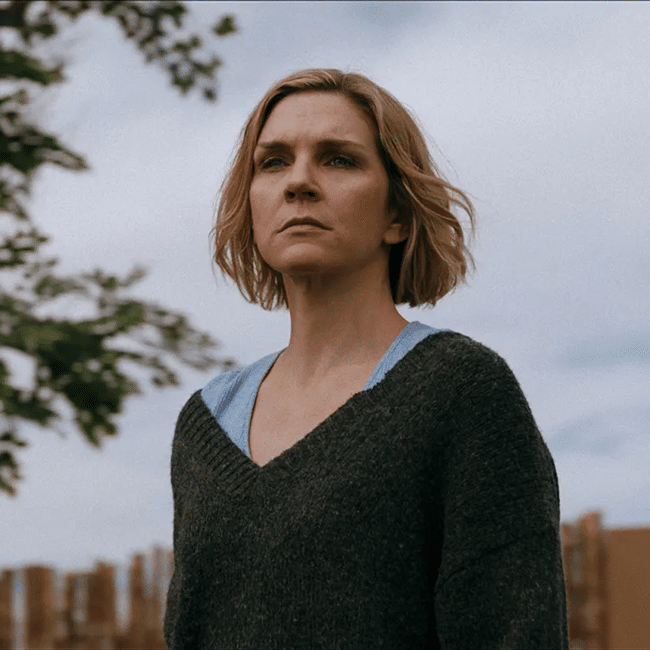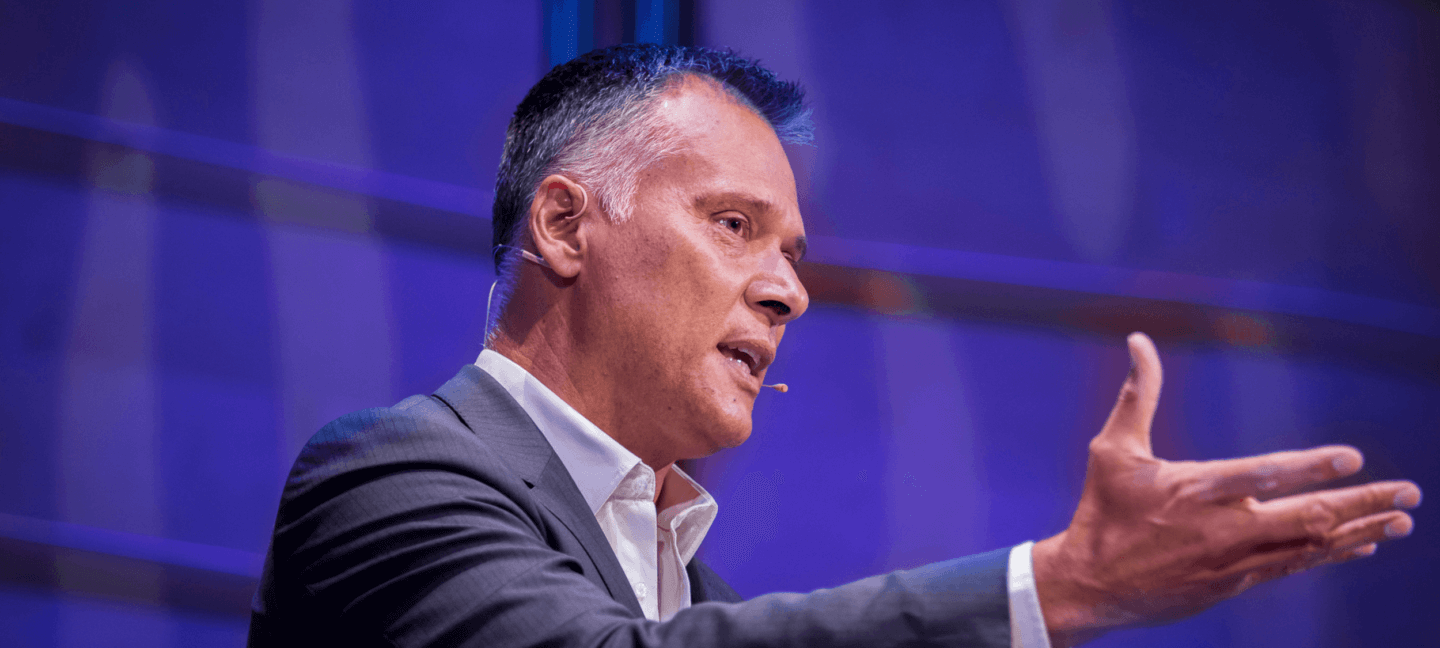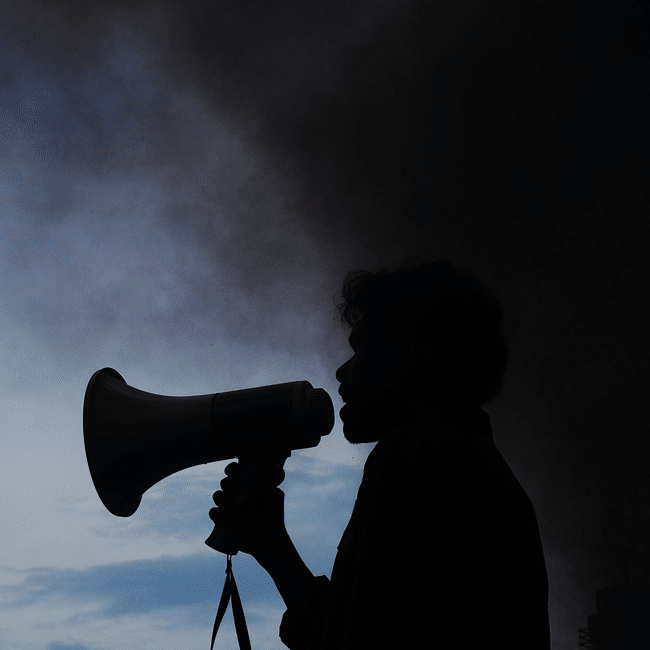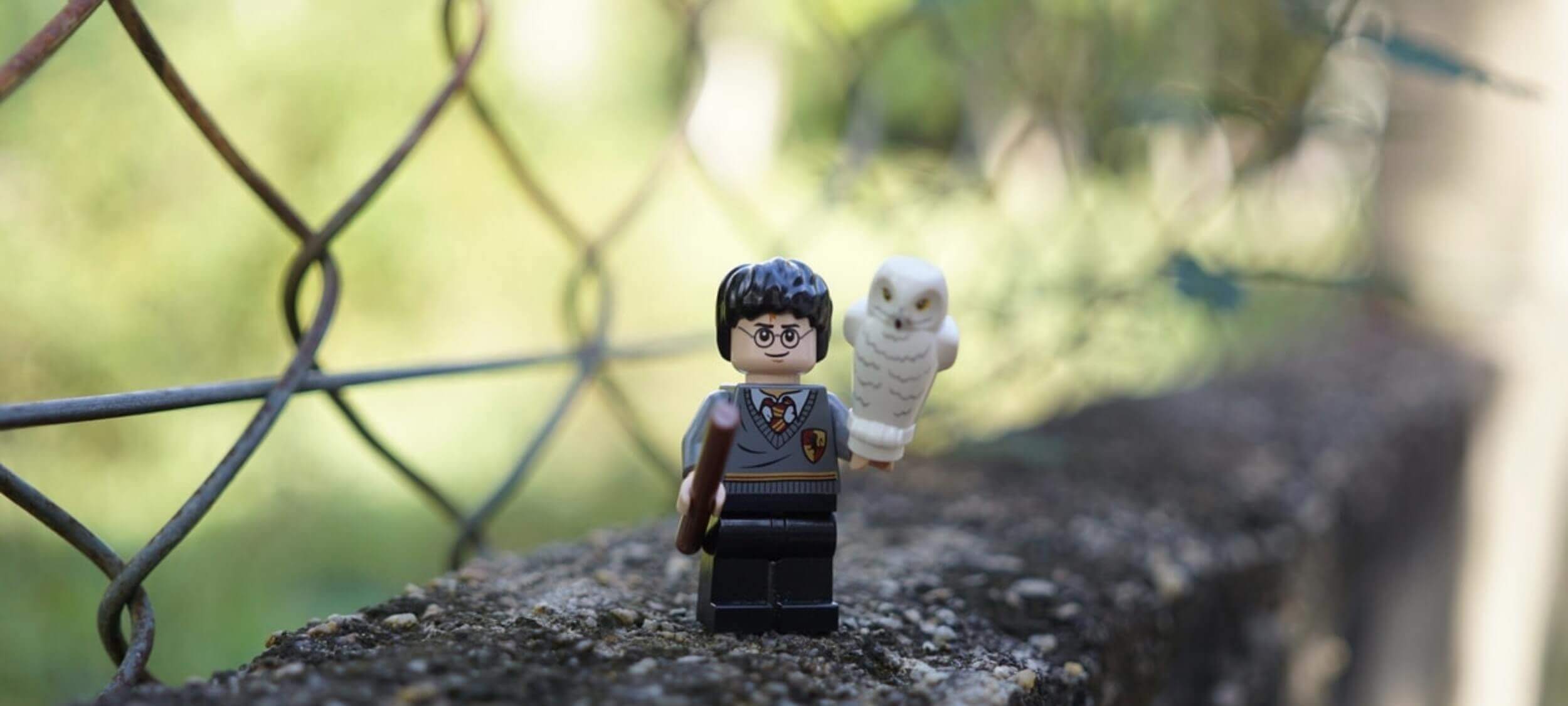6 dangerous ideas from FODI 2024

From dangerous dissenters to powerful provocations – this year Festival of Dangerous Ideas speakers covered some of the thorniest dilemmas of our time.
Here are 6 things we learnt at FODI 2024:
Our ideological chambers can be dismantled, but only if we can listen to others
Sharing some of the more extreme responses to her work, cultural critic Roxane Gay examines the costs of unapologetically sharing bold ideas and opinions.
Speaking to the current state of fragmented discourse, where our political differences are more calcified than ever, Gay says “This mode of discourse assumes that what we believe in and our faith in what we know are so fragile that they cannot stand thoughtful engagement”. In her talk, she says there is still hope to create progress if we are able to become more elastic in our thoughts, “to stop screaming and start listening”.
The machines are killing our kids
Psychologist Jean Twenge makes the case that younger generations are suffering in life-altering ways because of the amount of time they spend looking at screens. Through years of research and millions of survey responses, she argues that since the proliferation of smartphones, adolescents and teens are increasingly and significantly more likely to suffer from symptoms of depression, while simultaneously are much less likely to engage in positive wellbeing practices like sleeping enough, seeing friends or exercising.
Twenge proposes that a radical shift in the amount we use our phones is needed (as young people, as parents and as a society) to reverse these harmful effects.
We need to engage in a culture of growth rather than cancellation
If podcast host Megan Phelps-Roper had left the extremist Westboro Baptist Church today, cancel culture might have meant she’d never have been forgiven, and she wouldn’t have become such a powerful voice for persuasion and reconciliation. Speaking on the Uncancelled Culture panel, Megan argues for a radical form of forgiveness, where we’re forced to recognise someone’s humanity, consider not just what they did but why, and take a chance on the possibility of redemption. While it can be difficult for us to set aside our sense of justice to engage with empathy, just as it can be difficult for us to express contrition for our own errors, but it’s only in doing so that we will shift from cancel culture to a culture of growth.
Coming to terms with our desire for something greater can help us understand the human condition
In a cheeky conversation and book reading, comedian and author David Baddiel says his desperate desire for God convinced him that there isn’t one. “Desire provides no frame for reality”, says Baddiel. This recognition can at once be a liberation from our impulses, while at the same time be a reminder and a call for us to embrace the common humanity that compels us all to crave order within the chaos of life.
In difficult conversations, the most effective tool to communicate with our opponent is empathy
One year on from the release of the divisive podcast series The Witch Trials of JK Rowling, host and former member of the Westboro Baptist Church Megan Phelps Roper, and podcast producer and journalist Andy Mills reflect on the radical power of listening when we come across viewpoints in direct opposition of our own.
As they dissect the reasoning that led them to wade into the difficult cultural conversation surrounding sex and gender, Phelps-Roper cites her previous experience talking at the 2018 Festival of Dangerous Ideas about leaving the Westboro Baptist church “Listening is not agreeing, empathy is not a betrayal of your cause… My life was profoundly changed by exactly that kind of dialogue. It’s what caused me to leave extremism and find meaning and love and freedom and grace in a world I’d been taught was evil”.
Denial sustains liberal imagination
How can a left leaning Western person reconcile the commitment to democracy and civil rights, with support for a state that practices apartheid? Academic Saree Makdisi argues it’s because we are living in a culture of denial. He says the mechanisms of occlusion, narrative and appealing to progressive Western values serve to make us overlook the world’s horrors.
Catch up on select FODI 2024 sessions, streaming on demand for a limited time only.
BY The Ethics Centre
The Ethics Centre is a not-for-profit organisation developing innovative programs, services and experiences, designed to bring ethics to the centre of professional and personal life.
Ethics in your inbox.
Get the latest inspiration, intelligence, events & more.
By signing up you agree to our privacy policy
You might be interested in…
Opinion + Analysis
Society + Culture
FODI returns: Why we need a sanctuary to explore dangerous ideas
Opinion + Analysis
Climate + Environment, Health + Wellbeing, Society + Culture
Melbourne Cup: The Ethical Form Guide
Opinion + Analysis
Politics + Human Rights, Society + Culture
Respect for persons lost in proposed legislation
Opinion + Analysis
Society + Culture
How The Festival of Dangerous Ideas helps us have difficult conversations
What are we afraid of? Horror movies and our collective fears

What are we afraid of? Horror movies and our collective fears
Opinion + AnalysisSociety + Culture
BY Joseph Earp 20 AUG 2024
In 1968, the dead walked the Earth. George A. Romero’s The Night of The Living Dead, shot on a shoestring budget in black and white and film stock, was the movie that popularised zombies as we now know them.
In the film, a ragtag group of survivors must band together, as corpses rise from the grave in a desperate search for human flesh.
Night of the Living Dead was a smash hit. It made more than 250 times its budget, becoming a cultural talking point, and scarring an entire generation. Taken on face value, its success is surprising. The film is unremittingly bleak, even for a horror movie – aside from the blood and guts, it also ends with one of cinema’s great downers, as the film’s hero, Ben (Duane Jones), is murdered not by the zombies, but instead an armed posse dispatched to kill the zombies, who confuse him for a reanimated corpse.
Given Ben is African-American, the film’s final image – his dead body set alight, burning to ash on top of a pile of zombie corpses – had powerful, painful symbolism for audiences in the late sixties. It was a time of huge social upheaval; of struggle, pain, and change. America was still in the midst of the Vietnam war, and the Civil Rights movement was continuing to gather steam.
Indeed, that collective social suffering is precisely the means of explaining Night of the Living Dead’s great success. Mired in images of real-life suffering, beamed into their homes via their TV sets, American audiences flocked to see a film that gave a voice to the feeling of the times – its ambient horror. To borrow a quote from horror director Wes Craven, Night of the Living Dead didn’t “create” fear – it released it.
Naming the unnamable
Horror’s persistent success – slashers almost always make money, and are a go-to for indie directors precisely because they’re almost guaranteed to make a financial return – speaks to the genre’s ability to address the unnamed. Each generation has its trauma, and each generation has a horror film that speaks to that trauma.
Alfred Hitchcock’s Psycho, released in 1960, was a reaction to a spate of serial murders – chiefly the killings committed by Ed Gein. Rosemary’s Baby, released the same year as Night of the Living Dead, bottled the collective anxiety that came from modern urbanisation: set in a sprawling apartment block, it posits that you can never truly know your neighbours. Carrie channeled first wave feminism, and the oppression conducted by both men and the church; Clive Barker’s Hellraiser explored queerness and kink, and the violent reaction to it; Hostel and Saw, the forerunners of the “torture porn” movement, were birthed by images of violence released out of Abu Ghraib; and Get Out compressed years of racist oppression into one shocking tale.
In this way, horror films tap into what philosopher and psychologist Carl Jung referred to as the “collective unconsciousness”. Jung believed that we all have both personal unconsciousness, and an unconsciousness shared by all. This deeper, shared unconsciousness is populated by “instincts”, “primal fears”, and “archetypes.” These archetypes directly tie us back to our ancestors – they are as old as human beings are. They are core figures, images, and stories, that, given they are located deep inside us, are frequently “strange” and disturbing. Jung gave these archetypes names, from “eternity” to “the profane”.
Horror draws on these archetypes. In fact, given how common archetypes are – we cannot help, Jung thought, coming back to them – sometimes, these archetypes can be described as “cliches.” Just as the collective unconsciousness keeps returning to specific images and figures, so too does horror have its tropes: the masked murderer; the demon child; the haunted house; the animal that appears as a harbinger of doom.
This is why horror movies tap us in a deep, powerful way. They apply images and stories to things that live deep inside us; that are innate. Indeed, the philosopher William James thought that fear was key to the unconscious – he argued that if you dropped an Eskimo into the African savannah, they would know to be afraid of a lion, even if they had never encountered one before. Whether we like it or not, terror lives somewhere deep inside us; an unavoidable vein of anxiety, running through the human condition. By engaging with that, horror movies hit us on a primal level – and bring us closer to each other.
The release of fear
This releasing quality of horror films has been proven to have personally therapeutic benefits. Horror movies allow us to confront our fears directly; to expose ourselves to them. But more than that, they allow us to do so in a controlled, calm setting.
When we’re terrified by a horror movie, we’re not terrified in the same way we would be if we were literally in the situation outlined. Our brains know, on some level, that we are safe; protected; sitting at home, or in a movie theatre. A recent study showed that horror movies can provide “stress release, managing real-life fears, and gradually reducing the impact of stressors through exposure to danger and fear in a controlled environment.”
But horror movies don’t just help individuals expose themselves to fear. Their hugely beneficial ethical dimension is their ability to help societies to understand their fears.
We cannot solve or change something that we cannot name. Without proper language – without images – we cannot hope to confront the sick or ailing parts of our society. Horror movies funnel collective anxieties into precise ones. And with their image as a kind of vocabulary, we can start talking about these issues, and in that way, move to change them.
Indeed, stories of horror and evil have historically served as a way of forming and reinforcing moral judgement. We tell ourselves stories of what taboos look like when they are broken in order to remind ourselves of the importance of those taboos. Using these narratives, we can come together in order to decide what is permissible and what is not – the shock of anti-social, violent behaviour moving us towards a place of steadfast moral judgement. The horror movie only scares us because it shows us what we shouldn’t do, what we don’t want, what we, collectively, will work to avoid.
This quality of sharing is important. The success of a film like Get Out brought people together. It cut across class, gender and racial divides. In cinemas across the world, people sat in the dark, and discovered that they were afraid of the same thing as the person in the seat next to them. And it is from that base of solidarity – provided by cinematic nightmares, no less – that special things can happen.
Image: Get Out, Universal Pictures

Ethics in your inbox.
Get the latest inspiration, intelligence, events & more.
By signing up you agree to our privacy policy
You might be interested in…
Opinion + Analysis
Politics + Human Rights, Relationships, Society + Culture
Stop giving air to bullies for clicks
Opinion + Analysis
Society + Culture
Why are people stalking the real life humans behind ‘Baby Reindeer’?
Opinion + Analysis
Society + Culture
David and Margaret spent their careers showing us exactly how to disagree
Explainer
Society + Culture, Politics + Human Rights
Ethics Explainer: Moral Courage
BY Joseph Earp
Joseph Earp is a poet, journalist and philosophy student. He is currently undertaking his PhD at the University of Sydney, studying the work of David Hume.
Should I have children? Here’s what the philosophers say

Should I have children? Here’s what the philosophers say
Opinion + AnalysisHealth + WellbeingSociety + Culture
BY Tony Milligan Lena Springer 16 AUG 2024
Parenthood has traditionally been considered the normal outcome of growing up. A side effect of reaching maturity.
Across Europe and the US, only 10%-20% of adults remain childless or (more positively) child free. In some cases, this is accidental. People wait for an ideal time that never arrives – and then it is too late.
Anti-natalism is the philosophical view that it is ethically wrong to bring anyone else into being. The justifications draw upon worries about suffering and choice. And it’s not an exclusively modern attitude. The ancient Greek playwright Sophocles, writing at the end of the 5th century BC, tells us that it is “best of all” not to have been born, because life contains far more suffering than good.
Contemporary anti-natalist arguments add a nuance by focusing on an asymmetry between pain and its absence. The absence of all pain is good, but this good can only be achieved through not bringing anyone into existence at all. The presence of pain is bad, and it is always part of life. So why forego the certainty of a good thing for the certainty of many bad things?
Philosopher David Benatar presents the best known contemporary argument along these lines in his 2006 Sophocles-inspired book, Better Never to have Been:
“It is curious that while good people go to great lengths to spare their children from suffering, few of them seem to notice that the one (and only) guaranteed way to prevent all the suffering of their children is not to bring those children into existence in the first place.”
Other versions of anti-natalism focus instead upon the fact that nobody chooses to exist. Existence is thrust upon us. Inconveniently, this suggests that the vast number of teenagers who tell their parents: “I didn’t ask to be born”, may in fact be budding philosophers.
The problem with anti-natalism
Anti-natalist arguments can sound like something from Oscar Wilde, rather than practical guidance for life. This makes them difficult to challenge. However, one popular response is to say that a refutation is unnecessary.
Having children is part of the canvas on which ethics is painted, rather than part of the picture. The ethical picture can change, but the canvas is not optional. It holds our way of human life in place. Individuals can choose to procreate or not to procreate, but rejecting parenthood entirely has no place within a good society.
Critics find this response evasive. Many of us also wonder why humans are drawn toward parenthood and what we might be missing if we choose not to procreate. Schopenhauer answers the “why” question in The World as Will and Representation (1818) by claiming that biology overrides sound judgement and tricks us into producing the next generation.
But is it really a trick? After all, there do seem to be some important good things bound into parenthood.
The philosophical benefits of parenthood
Plato’s Lysis struggles to identify these good aspects of parental care. His central character, Socrates, gives some young men a hard time when they cannot identify what benefit they bring to their parents. What they fail to recognise is that the goods of parenthood involve seeing a child grow and mature – and finding meaning in the process.
This recognition of the role played by care for others is also present in many religious traditions – particularly in the ways that they address life’s sufferings.
Buddhists celebrate the rebirth of enlightened humans into a world of suffering in the hope that they may help other beings.
Confucians highlight that, across generations, children can care for parents and grandparents.
In both cases, care binds a good society together, in ways that sustain social hope. In contemporary social economy, the younger generation of taxpayers supports older generations as well as childcare.
While non-existence would avoid may bad things, new humans carry the possibility of making the future better than the past. Losing such hope for the future would be terrible all round.
Focusing instead on the lack of choice exercised by a nonexistent, unborn human generates interesting philosophical puzzles, but bypasses what runs philosophically deep. Such as the wonder that the female body is where the creation of all humans happens – the place where every pianist, pickpocket and anti-natalist starts out.
The female power to give birth also counteracts complex forms of sociocultural control and sets in motion practical problems: who will become family members of a new human? Will relatives and our wider society care in the right ways?
Women must make the final decision about giving or not giving birth. At the same time, to give life a sense of meaning, we share our lives with friends, life partners, and children. Disappointment, joy and loss are part of the package. Even Schopenhauer, who spurned parental love, felt the need to lavish care upon his beloved dog.
We can love and find meaning without having children. But parenthood is one of our more entrenched ways of trying to live meaningful lives. For some, there may be no other workable path. Personal histories can lead any of us to feel incomplete without children. More disturbingly, it can lead people to feel like failures if they remain childless. And that, surely, is a bad thing.
In a rare Sydney appearance, philosopher David Benatar presents The Case for Not Having Children at The Festival of Dangerous Ideas on Sunday 25 August, 2024. Tickets on sale now.
This article was originally published in The Conversation.

Ethics in your inbox.
Get the latest inspiration, intelligence, events & more.
By signing up you agree to our privacy policy
You might be interested in…
Opinion + Analysis
Health + Wellbeing, Society + Culture
Does ethical porn exist?
Opinion + Analysis
Business + Leadership, Health + Wellbeing
What your email signature says about you
Opinion + Analysis
Society + Culture, Politics + Human Rights
‘The Zone of Interest’ and the lengths we’ll go to ignore evil
Opinion + Analysis
Society + Culture
Does ‘The Traitors’ prove we’re all secretly selfish, evil people?
BY Tony Milligan
Research Fellow in the Philosophy of Ethics, Cosmological Visionaries project, King's College London.
10 dangerous reads for FODI24

Exploring crumbling democracies and generational warfare to moral panic, The Festival of Dangerous Ideas returns 24-25 August to Carriageworks, Sydney.
FODI24 will create a sanctuary for those wanting to cut through the noise, ask hard questions and engage in good faith conversation about the most challenging issues of our time.
Sharpen your mind with 10 dangerous books from this year’s line-up of thinkers, artists, experts and disruptors. You know, the books you need to buy before they are banned, burnt or redacted forever…
Roxane Gay: Opinions
Focusing on the art of argument, this retrospective of essays and writings from culture critic Roxane Gay covers politics, race and identity, feminism, popular culture, and more.
Roxane Gay // How to Have Dangerous Ideas // Sat 24 August, 12:30pm
David Runciman: How Democracy Ends
A provocative book by political philosopher and historian David Runciman, asks the most trenchant questions that underlie the disturbing patterns of our contemporary political life.
David Runciman // Votes for 6 Year Olds // Sat 24 August, 4:30pm
Jean Twenge: iGen
Drawing from nationally representative surveys of 11 million young people as well as in-depth interviews, iGen is the first book to document the cultural changes shaping today’s teens and young adults, documenting how their changed world has impacted their attitudes, worldviews, and mental health.
Jean Twenge // The Machines Killing Our Kids // Sat 24 August, 10:15am
David Baddiel: The God Desire
A philosophical essay that utilises comedian David Baddiel’s trademarks of storytelling and personal anecdotes, offering a highly readable new perspective on the most ancient of debates.
David Baddiel // The God Desire // Sun 25 Aug, 6:45pm
Megan Phelps-Roper: Unfollow
A gripping memoir of escaping extremism, podcast host Megan Phelps-Roper uncovers her moral awakening, her departure from the Westboro Baptist Church, and how she exchanged the absolutes she grew up with for new forms of warmth and community. Her story exposes the dangers of black-and-white thinking and the need for true humility in a time of angry polarisation.
Megan Phelps-Roper & Andy Mills // The Witch Trials // Sat 24 Aug, 6:30pm
Jem Bendell: Breaking Together
In an era of societal collapse, academic Jem Bendell explores how the full pain of our predicament can liberate us into living more courageously and creatively.
Jem Bendell // Breaking Together // Sun 25 Aug, 3:45pm
Saree Makdisi: Tolerance is a Wasteland
Academic Saree Makdisi reveals the system of emotional investments and curated perceptions that sustains the liberal imagination of a progressive and democratic Israel.
Saree Makdisi // Tolerance is a Wasteland // Sun 25 Aug, 12:45pm
Masha Gessen: Surviving Autocracy
A guide to understanding and recovering from the calamitous corrosion of American democracy over the past few years from Russian-born writer and journalist Masha Gessen.
Masha Gessen // The War of the Narratives // Sat 24 August, 2:30pm
Jen Gunter: Blood
A book from the Internet’s OBGYN that fights myths and fear mongering with real science, inclusive facts, and shame-free advice on the topic that impacts more than 1.8 billion people worldwide: menstruation.
Jen Gunter // Lifting the Curse // Sun 25 Aug, 11:45am
Coleman Hughes: The End of Race Politics
Author Coleman Huges makes the case for a colorblind approach to politics and culture, warning that the so-called ‘anti-racist’ movement is driving us—ironically—toward a new kind of racism.
Coleman Hughes & Josh Szeps // A Colourblind Society: Uncomfortable Conversations Live // Sun 25 Aug, 4:45pm
These titles, plus more will be available at the Dangerous Books x Gleebooks popup – running 10am-8pm across 24-25 August at Carriageworks, Sydney. Check out the full FODI program at festivalofdangerousideas.com
BY The Ethics Centre
The Ethics Centre is a not-for-profit organisation developing innovative programs, services and experiences, designed to bring ethics to the centre of professional and personal life.
Ethics in your inbox.
Get the latest inspiration, intelligence, events & more.
By signing up you agree to our privacy policy
You might be interested in…
Opinion + Analysis
Relationships, Society + Culture
Where are the victims? The ethics of true crime
Opinion + Analysis
Society + Culture
The Festival of Dangerous Ideas has been regrettably cancelled
Opinion + Analysis
Society + Culture
The ethics of pets: Ownership, abolitionism and the free-roaming model
Opinion + Analysis
Society + Culture
True crime media: An ethical dilemma
Ethics Explainer: Cancel Culture

When mass outrage is weaponised and encouraged, it can become more of a threat to the powerless than to those it’s intended to hold to account.
In 2017, comedian Louis C.K. was accused of several instances of sexual misconduct, to which he later admitted in full. This was followed by a few cancelled movies, shows and appearances before he stepped away from public life for a few years.
In 2022, lecturer Ilya Shapiro was put on leave following a tweet he posted a few days before he was employed. Shapiro contended that the university failed in its commitment to free expression by investigating his actions for four months, before reinstating him under the reason that he was not accountable to the university for actions taken before his employment started.
These are both instances of what some people would call “cancel culture”, yet they involve very different issues. To unpack them, we first need to define what we mean by cancel culture.
From around 2015 onwards, the term started gaining mainstream traction, eventually being named Word of the Year by Macquarie Dictionary in 2019:
“The attitudes within a community which call for or bring about the withdrawal of support from a public figure, such as cancellation of an acting role, a ban on playing an artist’s music, removal from social media, etc., usually in response to an accusation of a socially unacceptable action or comment by the figure.”
The quintessential examples of cancel culture are calls from groups of people online for various public figures to be stripped of support, their work boycotted, or their positions removed following perceived moral transgressions. These transgressions can be anything from a rogue tweet to sexual assault allegations, but the common theme is that they are deemed to be harmful and warrant some kind of reaction.
A notoriously contentious concept, cancel culture is defined, or at least perceived, differently based on the social, cultural and political influences of whom you ask. Though its roots are in social justice, some believe that it lacks the nuance needed to meet the ends it claims to serve, and it has been politicised to such an extent that it has become almost meaningless.
Defenders of accountability
The ethical dimensions of this phenomenon become clear when we look at the various ways that cancel culture is understood and perceived by different groups of people. Where some people see accountability, others see punishment.
Defenders of cancel culture, or even those who argue that it doesn’t exist, say that what this culture really promotes is accountability. While there are examples of celebrities being shamed for what might be conceived as a simple faux pas, they say that the intent of most people who engage in this action is for powerful to be held accountable for words and actions that are deemed seriously harmful.
This usually involves calls to boycott, like the ongoing attempts to boycott J.K. Rowling’s books, movies and derivative games and shows because of her vocal criticism of transgender politics since 2019, or like the many attempts to discourage people from supporting various comedians because of issues ranging from discriminatory sets to sexual misconduct and harassment.
Those who view cancel culture practices as modes of justice feel that these are legitimate responses to wrongdoings that help to hold people with power accountable and discourage further abuses of power.
In the case of Louis C.K., it was widely viewed that his sexual misconduct warranted his shunning and removal from upcoming media productions.
Public figures are not owed unconditional support.
While it’s not clear that this kind of boycotting does anything significant to remove any power from these people (they all usually go on to profit even further from the controversy), it’s difficult to argue that this sort of action is unethical. Public figures are in their positions because of the support of the public and it could be considered a violation of the autonomy we expect as human beings to say that people should not be allowed to withdraw that support when they choose.
Where this gets sticky, even for supporters of cancel culture, is when people with relatively little power become the targets of mass social pressure. This can lead to employers distancing themselves from the person, sometimes ending in job loss, to protect the organisation’s reputation. This is disproportionately harmful for disadvantaged people who don’t have the power or resources to ignore, fight, or capitalise on the attention.
This is an even further problem when we consider how it can cause a sense of fear to creep into our everyday relationships. While people in power might be able to shrug off or shield themselves from mass criticism, it’s more difficult for the average person to ignore the effects of closed or uncharitable social climates.
When people perceive a threat of being ostracised by friends, family or strangers because of one wrong step they begin to censor themselves, which leads to insular bubbles of thoughts and ideas and resistance to learning through discussion.
Whether this is a significant active concern is still unclear, though there is some evidence that it is an increasing phenomenon.
Defenders of free speech
Given this, it’s no surprise that the prevailing opposition to cancel culture is framed as a free speech and censorship issue, viewed by detractors as an affront to liberty, constructive debate, social and even scientific progress
Combined with this is a contention that cancelling someone is often a disproportionate punishment and therefore unjust – with people sometimes arguing that punishment wasn’t warranted at all. As we saw earlier, this is particularly a problem when the punishments are directed at disadvantaged, non-public figures, though this position often overstates the effect the punishments have on celebrities and others in significant power.
A problem with the claim that cancel culture is inherently anti-free speech is that, especially when applied to celebrities, it relies on a misconception that a right to free speech entails a right to speak uncontested or entitlement to be platformed.
In fact, similar to boycotting people we disagree with, publicly voicing concerns with the intention of putting pressure on public figures is an exercise in free speech itself.
Accountable free speech
An important way forward for both sides of issue is the recognition that while free speech is important, the limits of it are equally so.
One way we can do this is by emphasising the difference between bad faith and good faith discussion. As philosopher Dr Tim Dean has said, not all speech can or should be treated equally. Sometimes it is logical and ethical to be intolerant of intolerance, especially the types of intolerance that use obfuscating and bad faith rhetoric, to ensure that free speech maintains the power to seek truth.
Focusing on whether a discussion is being had in bad faith or good faith can differentiate public and private discourse in a way that protects the much-needed charitability of conversations between friends and acquaintances.
While this raises questions, like whether public figures should be held to a higher standard, it does seem intuitive and ethical to at least assume the best of our friends and family when having a discussion. We are in the best place to be charitable with our interpretations of their opinions by virtue of our relationships with them, so if we can’t hold space for understanding, respectful disagreement and learning, then who can?
Another method for easing the pressures that public censures can have on private discourse is by providing and practicing clear ways to publicly forgive. This provides a blueprint for people to understand that while there will be consequences for consistent or shameless moral transgressions, there is also room for mistakes and learning.
For a deeper dive on Cancel Culture, David Baddiel, Roxane Gay, Andy Mills, Megan Phelps-Roper and Tim Dean present Uncancelled Culture as part of Festival of Dangerous Ideas 2024. Tickets on sale now.

BY The Ethics Centre
The Ethics Centre is a not-for-profit organisation developing innovative programs, services and experiences, designed to bring ethics to the centre of professional and personal life.
Ethics in your inbox.
Get the latest inspiration, intelligence, events & more.
By signing up you agree to our privacy policy
You might be interested in…
Opinion + Analysis
Society + Culture
How The Festival of Dangerous Ideas helps us have difficult conversations
Explainer, READ
Relationships, Society + Culture
Ethics Explainer: Shame
Opinion + Analysis
Relationships, Society + Culture
Meet David Blunt, our new Fellow exploring the role ethics can play in politics
Opinion + Analysis
Politics + Human Rights, Society + Culture
Why sometimes the right thing to do is nothing at all
How The Festival of Dangerous Ideas helps us have difficult conversations

How The Festival of Dangerous Ideas helps us have difficult conversations
Opinion + AnalysisSociety + Culture
BY Danielle Harvey 4 JUL 2024
We have probably never been good at having difficult conversations about controversial topics. But today these conversations are more important than ever.
In a world of explosive complexity, escalating diversity and accelerating change, there’s a risk that our old ideas have already become stale, and we desperately need to replace them with new ideas built to handle the monumental challenges we face today.
That’s why the Festival of Dangerous Ideas (FODI) exists. FODI’s purpose is to challenge conventional wisdom, because sometimes our ideas and assumptions need to be tested, even if to just make sure they still hold up. And should we find them wanting, FODI offers new ideas to improve upon and replace the old.
But challenging what we assume to be true, questioning what is “known,” or raising radical new ideas can be confronting, even offensive, to many ears. It can lead to difficult conversations, even if they’re precisely the ones we need to have.
The problem is that today’s world is particularly hostile towards having difficult and challenging conversations. Some cling to their old ideas and refuse to move with a changing world. Others vigorously defend their particular new ideas, preventing them from being tested to ensure they’re the best ones for our times. Both camps act like they have their backs against the wall, and the stakes feel so high that they’re unwilling to allow conversation that might challenge their beliefs – or their identity.
This is why FODI is dangerous.
FODI’s remit puts it at odds with a growing culture of outrage, cancellation and self-censoring. Yet FODI is as committed as ever to its mission, even if that means facing the fact that some people will react badly to having their beliefs challenged or recoil from radical new ideas.
To achieve its mission, FODI has a commitment to principle and transparency. One of FODI’s core principles is that not every dangerous idea is worth promoting. FODI only offers ideas that are backed by robust reasoning and evidence, and which are delivered in good faith – meaning they’re spoken with authenticity, integrity and with an intention to make the world a better place.
And while some ideas offered at FODI might be sensational, FODI rejects sensationalism. It doesn’t promote a speaker simply because they will cause a stir, but acknowledges that some challenging ideas will grab attention or trigger a backlash.
Another core principle is that FODI doesn’t preach. There is no particular belief, political ideology or ethical viewpoint that FODI seeks to promote – except its meta-commitment to good ideas supported by reason, evidence and good faith.
FODI chooses its speakers carefully. First, they must be qualified. Some are experts in their field, with qualifications and publications that demonstrate their mastery of the subject. Others have a more personal kind of expertise, with direct lived experience of the subject matter they’re invited to share. Second, they must be speaking in good faith rather than seeking to feed platitudes to the public in order to elevate their status.
But there are red lines that FODI will not cross. FODI is committed to respecting the inherent dignity of all people, meaning there might be some subjects that are inherently degrading or dehumanising to a particular population, or which are impossible to appropriately address in a public forum. FODI will not platform such ideas.
However, FODI is tolerant of minor indiscretions – because it acknowledges each of us is flawed – but only to the degree that speakers are willing to own their actions and take appropriate measures to rectify any harm they have caused.
The final hurdle that FODI speakers must clear is perhaps the most difficult to judge. Occasionally there will be a dangerous idea that has merit, and the speaker has the qualifications to express it, but which is so far outside of acceptable discourse that there is little or no chance that the idea will be received by the audience in good faith. Some ideas simply require more space or charity on behalf of the audience than FODI is able to provide, so they are not the kinds of ideas that will be platformed at the festival.
FODI is about dangerous ideas. It’s in the name. FODI’s line-up won’t please everybody. It never does. Nor does it aim to. But FODI is a space for curious minds to challenge ideas that need to be tested, and offer new ideas that the world desperately needs.
FODI returns 22-23 August 2026 at Carriageworks, with Opening Night featuring Salman Rushdie on 21 August at Sydney Town Hall. Sign up to receive the latest Festival updates, including the full program announcement for FODI 2026 at festivalofdangerousideas.com.
Ethics in your inbox.
Get the latest inspiration, intelligence, events & more.
By signing up you agree to our privacy policy
You might be interested in…
Big thinker
Society + Culture
Big Thinker: Philippa Foot
Opinion + Analysis
Business + Leadership, Climate + Environment, Society + Culture
Overcoming corruption in Papua New Guinea
Opinion + Analysis
Society + Culture
Should we be afraid of consensus? Pluribus and the horrors of mainstream happiness
Opinion + Analysis
Politics + Human Rights, Society + Culture
What comes after Stan Grant’s speech?
BY Danielle Harvey
Danielle Harvey is Festival Director of the Festival of Dangerous Ideas. A curator, creative producer and director, Harvey works across live performance, talks, installation, and digital spaces, creating layered programs that connect deeply with audiences.
Critical thinking in the digital age

It’s a usual Friday night; you’re at a friend’s place. A hush falls over the group as one of the boys pipes up: “Yeah nah but Andrew Tate has some good ideas too”.
Hopefully, you’ve never found yourself in this position, but you might know someone who has. Figures like Andrew Tate, known for his proud advocacy of misogyny among young men, aren’t uncommon on social media and their followings are microcosms of a much larger issue: a deficit of critical thinking in online education and spaces.
Unfortunately, social media platforms aren’t adequately removing hate speech or radicalising figures, nor can we expect filters and rules to ever be enough. With this in mind, we need ways of educating (often young) viewers on how to decide what and who to trust.
I recently attended a live recording of the Principle of Charity podcast at Sydney Writers’ Festival where this idea was raised with comparisons between non-fiction books and videos. Philosopher A.C. Grayling and art historian and content creator Mary McGillivray spoke at length about the various limitations of each medium. While both were reluctant to take polarising positions, eventually a sticking point did arise.
Grayling argued that the relative accessibility and ease of creating social media content makes it more dangerous, given its ability to platform those with little-to-no credibility or expertise. This echoes an interesting evolutionary theory called “costly signalling”, which says the more someone invests in sending a message – i.e. the more “costly” it is for them – the more likely it is to be trustworthy. On the other hand, the less someone invests in sending a message – the “cheaper” it is – the more likely it is to be untrustworthy or noisy. This is one reason why handwritten letters tend to be more thoughtful than fleeting social media posts. McGillivray’s response was two-fold.
Firstly, she noted that there are plenty of questionable published books out there by charlatans and the like – books that prey on insecurities to make sales, or simply peddle well-disguised misinformation. So, this isn’t a problem unique to social media.
Secondly, to which Grayling conceded, traditional avenues of information dissemination are often gatekept behind propriety, things like formal educational status or money. This is the flip side to costly signalling when applied to humans: only those who can “afford” to make costly communications will be heard and believed, so the wealthy and powerful will often dominate public discourse.
There are significant benefits, then, to having a medium that’s accessible to those who have never been afforded the circumstances to engage in these systems. There is still a trade-off: low-cost communication means potential for an oversaturation of inaccurate or useless information, but that is something we must contend with if we want to avoid restricting these things to the already-rich-and-powerful.
McGillivray herself is in the middle of a PhD, not yet an expert in the eyes of academia, yet she has amassed a huge following for her historical art analysis and edutainment (educational entertainment). Using her MPhil in History of Art and Architecture, she is able to produce well-researched and engaging videos that educate an audience that might not otherwise have been introduced to the topic at all.
Unfortunately, it’s especially easy for poor video information to also garner audiences because of its reliance on charisma above all else. We can be easily swayed by charisma as we passively consume it, because passive consumption leaves us more open to suggestion.
We can be prone to dismissing legitimate information and being overly charitable towards frauds based almost entirely on aesthetics.
Whom should we listen to?
Who qualifies as an expert, and when is being an expert relevant?
To figure this out, we have to talk about the combination of trust and critical thinking. Regardless of whether we’re picking up a book or scrolling on our phones, we need to know whether we can trust what we’re consuming and who we’re consuming it from, else we become yet another cog in machines of misinformation.
Unfortunately, there are many forces in the world that try to deceive us every day, from advertisers to influencers to corporations to politicians. To gain a good sense for what to trust, we need to know what to distrust by developing our critical thinking skills. This process isn’t simple, yet anyone can do it.
The first step is acknowledging that we are sometimes gullible and generally easy to convince with rhetoric. Speaking quickly, using jargon, seeming confident, having a high production quality are all things we intuitively associate with intelligence or expertise and yet they can often act as a distraction from the incoherence of the information being presented to us. This isn’t our fault – they’re designed and used specifically to lower our intellectual guards – but it is something we can learn to recognise and counter.
On top of this, even when we are capable of being critical of what we consume, we’re often bombarded with so much information that it makes it almost impossible anyway. In these situations, we rely on heuristics and biases to varying degrees of success. These mental shortcuts let us make faster decisions, but that speed often comes at a cost of accuracy.
Being discerning of sources
One clear thing to look for is the source of the information.
Check if the information comes from a generally trusted source, like a government website, a university, a peer-reviewed study or a reputable news outlet. While it’s dangerous to be overly sceptical, it is important to note that critical thinking should also extend to sources you trust. Just like anything else, governments, universities or other sources can be biased in certain ways, and being aware of those biases can help you understand the motivations behind different ways of presenting otherwise accurate information.
For example, news with a repeated focus on or omittance of a certain group of people can imply to viewers a false sense of significance. Without context, even accurate information can be used to misrepresent a wider picture.
There are many organisations dedicated to fact-checking and bias-checking news and politics, so using them alongside your broader consumption of information can give you a more comprehensive perspective on different issues. For fact-checking of global news trends, there is the International Fact Checking Network, or in Australia there is the Australian Associated Press Fact Check. These resources can help us identify common misinformation trends.
However, there are other ways to train ourselves to be aware of our own biases when we consume media and especially news. For example, Ground News is an organisation that collates news stories from thousands of sources and demonstrates how the same stories are presented differently depending on the general political slant of the publication. This is an effective way of learning about how even subtle differences in language can have a drastic impact on our interpretation of news. Using resources like this is a good way to develop media literacy by training yourself to recognise patterns in media coverage.
Critical reflection
Many people aren’t going to get their information straight from the source, though. Let’s say you have found an author or a creator that you like. Maybe your friend even told you about it. How do you know if you should trust them?
Again, the first thing to check is where they’re getting their information from. If they’re presenting evidence, then check that that evidence is coming from a place that you know to be trustworthy. This isn’t a check that you need to do all the time but putting this effort in at least at the beginning will give you a foundation for trusting this person in the future.
If they aren’t presenting empirical evidence, you can check their credentials and history. Do they have reputable qualifications in a relevant field? Do they have a relevant lived experience to speak from? Do they have a history of presenting accurate information? Is what they’re saying consistent with their own points and with what you know from trusted sources?
While not all necessary, these are all different ways of making sure that you critically reflect on the news and media you consume.
Other useful ways to engage critically with media are to challenge yourself to identify different aspects of it. The intended audience can tell you a lot about a publication, like what their motivations or affiliations might be. You can identify this by looking at the language used and asking yourself how it reflects who it is trying to speak to. You can also find potential bias by imagining how the information might sound different if it was written with another kind of audience in mind.
Another method of testing your understanding of a piece of news is to try to identify what the intended message is by summarising it in 1-2 sentences. Doing this is a good way to practice understanding the implications of lots of bits of information as a whole. It will also help you to ascertain underlying assumptions that are made without the viewer’s comprehension. Identifying these assumptions will help prevent you from being misled.
For example, there is a general implicit assumption that if something is in the news, then it is important. But you might not agree with that. Sometimes things are reported on or spoken about to cause them to seem important, so by questioning that foundational assumption we can begin to critique the content and motivations behind certain information.
Identifying these can help you determine how to process the information being presented to you and whether you need to scrutinise it further. Developing critical thinking skills to increase your media literacy is an important part of ethical consumption because it helps us navigate systems of power and slowly prevents the spread of harmful information and ideas.
The Principle of Charity is a podcast that injects curiosity and generosity back into difficult conversations, bringing together two expert guests with opposing views on big social issues.

Ethics in your inbox.
Get the latest inspiration, intelligence, events & more.
By signing up you agree to our privacy policy
You might be interested in…
Opinion + Analysis
Business + Leadership, Society + Culture
The Ethics Institute: Helping Australia realise its full potential
Opinion + Analysis
Society + Culture
David Lynch’s most surprising, important quality? His hope
Opinion + Analysis
Politics + Human Rights, Society + Culture
Free speech is not enough to have a good conversation
Explainer
Health + Wellbeing, Society + Culture
Ethics Explainer: Logical Fallacies
BY Daniel Finlay
Daniel is a philosopher, writer and editor. He works at The Ethics Centre as Youth Engagement Coordinator, supporting and developing the futures of young Australians through exposure to ethics.
Ethics Explainer: WEIRD ethics

If you come from a Western, Educated, Industrialised, Rich and Democratic society, then you’re WEIRD. And if you are, you might think about ethics differently than a majority of people alive today.
We all assume that we’re normal (to at least some degree). And it’s natural to assume everyone else sees the world at least somewhat similarly to the way we do. This is such a pervasive phenomenon that even psychology researchers have fallen into this trap, and it has influenced the way they have conducted their studies and the conclusions they have drawn about human nature.
Many psychology studies purport to investigate universal features of the human mind using a representative sample of people. However, the problem is that these samples are not typical of humans. The usual test subject in a psychology study is drawn from a very narrow pool, with around 80 percent being undergraduate students attending a university in the United States or another Western country.
If human psychology really was universal, this selection bias wouldn’t matter. But it turns out our minds don’t all work alike, and culture plays a huge role in shaping how we think. Even features of our minds that were once believed to be universal, such as depth perception, vary from one culture to another. For example, American undergraduate students are far more likely to see the two lines in the classic Muller-Lyer illusion as being significantly different lengths, whereas San forages of the Kalahari in southern Africa are virtually immune to the illusion.
But it’s not just perception that varies among cultures. It’s also the way we think about right and wrong, which has serious ramifications for how we answer ethical questions.
WEIRD ethics
Imagine you and a stranger are given $100 to split between you. However, there’s a catch. The stranger gets to decide how much of the $100 to offer you and what proportion they get to keep. They could split it 50:50, or 90:10. It’s all up to them. If you accept their offer, then you both get to keep your respective proportions. But if you reject the offer, you both get nothing.
Now imagine they offered you $50. Would you accept? It turns out that most people from Western countries would. But what if they offer you $10, so they get to keep $90? Most WEIRDos would reject this offer, even if it means they miss out on a “free” $10. One way to look at this is that WEIRD subjects were willing to incur a $10 cost to “punish” the other for being unfair.
This is called the Ultimatum Game, and it’s much studied in psychology and economics circles. For quite some time, researchers believed it showed that people are naturally inclined to offering a fair split, and recipients were naturally willing to punish those who offered an unfair amount.
However, repeated experiments have since shown that this is largely a WEIRD phenomenon, and individuals from non-WEIRD cultures, particularly from small-scale societies, behave very differently. People from these cultures were far more likely to offer a smaller proportion to their partner, and the recipients were far more likely to accept low offers than people from WEIRD cultures.
So, instead of revealing some universal sense of fairness, what the Ultimatum Game did was reveal how different cultures, and different social norms, shape the way people think about fairness and punishment. Far from being universal, it turns out that much of our thinking about fairness is a product of the culture in which we were raised.
It’s conventional
Another fascinating discovery that emerged from comparing WEIRD with non-WEIRD populations was that different cultures think about ethics in very different ways.
Research by Lawrence Kohlberg in the United States in the 1970s uncovered patterns in how children develop their moral reasoning abilities as they age. Most children start off viewing right and wrong in purely self-interested terms – they do the right thing simply to avoid punishment. The next stage sees children come to understand that moral norms keep society functioning smoothly, and do the right thing to maintain social order. The third stage of development goes beyond social conventions and starts to appeal to abstract ethical principles about things like justice and rights.
While these stages have been observed in most WEIRD populations, cross-cultural studies have found that non-WEIRD people from small-scale societies don’t tend to exhibit the final stage, with them sticking to conventional morality. And this has nothing to do with lack of education, as even university professors in non-WEIRD societies show the same pattern of moral thinking.
So, rather than showing clear stages of moral development, Kohlberg’s research just revealed something unique about WEIRD people, and their cultural emphasis on autonomy, while many other societies emphasise community or divinity as the basis of ethics.
Who are you?
The research on WEIRD psychology, has led to a significant shift in the way that psychologists and philosophers think about morality. On the one hand, it has shown that many of our assumptions about human universals in moral thinking are strongly influenced by our own cultural background. And on the other, it has shown that morality is a hugely more diverse landscape than was often assumed by WEIRD philosophers.
It has also caused many people to reflect on their own cultural influences, and pause to realise that their perspective on many important ethical issues might not be shared by a majority of people alive today. That doesn’t mean that we should lapse into a kind of anything-goes moral relativism, but it does encourage us to exercise humility when it comes to how certain we are in our attitudes, and also seek strong reasons to support our ethical views beyond just appealing to the contingencies of our upbringing.

BY The Ethics Centre
The Ethics Centre is a not-for-profit organisation developing innovative programs, services and experiences, designed to bring ethics to the centre of professional and personal life.
Ethics in your inbox.
Get the latest inspiration, intelligence, events & more.
By signing up you agree to our privacy policy
You might be interested in…
Opinion + Analysis
Relationships, Society + Culture
Community is hard, isolation is harder
Opinion + Analysis
Society + Culture
Ask an ethicist: Is it OK to steal during a cost of living crisis?
Opinion + Analysis
Society + Culture
Rethinking the way we give
Opinion + Analysis
Society + Culture
Gender quotas for festival line-ups: equality or tokenism?
FODI returns: Why we need a sanctuary to explore dangerous ideas

FODI returns: Why we need a sanctuary to explore dangerous ideas
Opinion + AnalysisSociety + Culture
BY The Ethics Centre 22 MAY 2024
New and challenging ideas are endangered species these days. They are surrounded by predators from all sides.
There are the entrenched interests that want to maintain the status quo. There are trolls who will beat them down just for laughs. Then there is the threat of cancellation by those who deem challenging ideas unworthy of being expressed at all.
Yet, as their natural habitat is being invaded, we as a society need these ideas to thrive more than ever before. We must continually challenge our assumptions, for history has shown us how often they end up being false. We must be wary of the status quo, and the powers that work to preserve it for their own benefit (and our detriment). We need to have open and honest conversations, lest our minds – and our ideas – become outdated and stale in a fast-moving world.
What we need is a sanctuary where new and challenging ideas can be nurtured and kept safe from the predators until they’re strong enough to be released into the wilderness and thrive. We need a space where they can be heard with open ears and challenged by open minds. A space where discourse is steered by good faith and reason rather than tribalism and fury.
FODI Festival Director, Danielle Harvey, says that is what The Festival of Dangerous Ideas (FODI, to its fans) is all about this year. “In a litany of entrenched ideas, 24-hour news cycles, shallow information and self-censorship, we desperately need a space where we can engage with challenging ideas in good faith.”
FODI is a “sanctuary”, not just as a refuge to keep us safe from the noise, the trolls and the bad faith speakers found in the wilderness of public discourse, but a space where we’re safe to engage with powerful and provocative ideas.
A lot is said about “safe spaces” these days. But they’re typically talking about only one type: “safe from…” spaces, where people can be protected from things that might be harmful, triggering, discriminatory or distressing. These spaces are important in a world filled with dangers, because we should always respect the inherent dignity and vulnerability of others, and seek to protect them from harm.
But if we only have “safe from…” spaces, we risk shutting down difficult conversations that we might have to have. We might stifle precisely the kinds of discourse that could make “safe from…” spaces less necessary. We can end up being coddled rather than becoming resilient or testing our own ideas.
FODI exemplifies another kind of safe space: “safe to…”. This is a space where people are able to express themselves authentically and in good faith without fear of reprisal, where they can engage with difficult and controversial topics that might even be deemed offensive in other contexts. These are the conversations we have to have if we’re to combat the problems that make “safe from…” spaces necessary.
“FODI is gives us an opportunity to hear powerful and provocative speakers from around the world talk on important and rousing topics,” says Harvey. It’s also a sanctuary. One where “audiences can engage with these ideas in a way that we, unfortunately, can’t in the wild. In our sanctuary you are safe from hype and safe to listen and to ask questions.”
Such a sanctuary needs to be carefully curated to enable open good faith engagement with dangerous ideas. That’s why this year’s FODI will be special. When you come to FODI, you will enter a sacred space, with a shared understanding of our mutual purpose and a will to create a better world. A space to let curiosity guide you, where good faith reigns, where you’re free from intimidation and shame for what you choose to believe and express, a safe place to think deeply about the world.
The Festival of Dangerous Ideas returns 24-25 August 2024 to Carriageworks, Sydney. Subscribe for program updates at festivalofdangerousideas.com.
Ethics in your inbox.
Get the latest inspiration, intelligence, events & more.
By signing up you agree to our privacy policy
You might be interested in…
Opinion + Analysis
Relationships, Society + Culture
Big Thinker: Kwame Anthony Appiah
Opinion + Analysis
Relationships, Society + Culture
Joker broke the key rule of comic book movies: it made the audience think
Big thinker
Society + Culture
Big Thinker: Philippa Foot
Opinion + Analysis
Society + Culture, Politics + Human Rights
Who gets heard? Media literacy and the politics of platforming
BY The Ethics Centre
The Ethics Centre is a not-for-profit organisation developing innovative programs, services and experiences, designed to bring ethics to the centre of professional and personal life.
Strange bodies and the other: The horror of difference

Strange bodies and the other: The horror of difference
Opinion + AnalysisSociety + Culture
BY Joseph Earp 21 MAY 2024
Love Lies Bleeding, the new film by director Rose Glass, is a simple girl-meets-girl noir story. At least, for about half of its running time.
Set in a nowhere town populated by gun nuts and ne’er-do-wells, it opens with a chance encounter between Lou (Kristen Stewart) and Jackie (Katy O’Brian). The former’s trapped in this dump because she needs to protect her sister, and the latter has sailed in to try and pursue her dreams of becoming a bodybuilding superstar. They shoot each other up with steroids, make food for each other, and fall in love.
They are, from the outset, different. They don’t fit into this place, with its villains and deadbeats. Not just because they are queer – but because they want for more, and desire something bigger than the diners and gun ranges on offer.
Which is the impetus for Love Lies Bleeding’s sudden, mid-film shift. The more Lou and Jackie fall out of step with the town, the more they begin to literally change. Jackie, always strong, starts to become superhumanly so. Her body expands outrageously, until, before the audience has really noticed what is going on, she is a giant, dwarfing the town and its denizens.

In this way, Love Lives Bleeding owes more to the cinematic genre of body horror than it does to the noir trappings it initially flirts with. And more than that, it investigates one of body horror’s key themes – the way that difference can manifest not just in our minds, but on our skin.
The mind and the body, the body and the mind
Body horror as a genre is a continuation of the work of philosopher Baruch Spinoza. For Spinoza, the body and the mind are the same thing – the one substance. They are “numerically identical”, as in, there is no separation whatsoever between them. When you point to the mind, you are also pointing to the body. Indeed, Spinoza was a monist – as in, he believed that all things were made from one singular “entity.” Spinoza called this entity nature; some have called it God.
Importantly, this monism means that for Spinoza, our emotions, thoughts, and desires are inherently embodied. On Spinoza’s view, we are not just a brain, controlling a fleshy automaton of a body. We are in our own skin. Or, more precisely, we are our own skin. Anything that we think or want expresses itself physically, because our brain is inherently physical.
This view tells us interesting things about both body horror cinema, and about otherness. Namely, that if we are ‘other’ – if we step outside the mainstream of sexuality, gender, or ability – then that otherness will manifest ourselves in our body. There is no hiding our difference on this view; no successful way to “pass”, as though we are part of the established norm. Anything that we think and feel will make us physically different, and therefore will be able to be read by others. We will always be a square peg in a round hole, and everybody will always know it.
Love Lies Bleeding takes the most extreme version of this perspective – Jackie’s gigantism is a physical manifestation of her difference that means she can’t fit through doorways, let alone pass as one of the town’s regular citizens. She is other, which means she doesn’t just occupy mental states that run against the mainstream. Her difference changes how she carries herself in the world – and how she is perceived.

The othered body and its power
Body horror films do more than merely diagnose the physical manifestations of otherness, however. They also pass a sort of moral judgment on it. Many entries into the genre don’t see this otherness as something to be avoided, or stripped away. Indeed, they see it as something to be embraced – a source of considerable power.
Take, for instance, Carrie, directed by Brian DePalma, in which a young alienated woman discovers that she has telekinetic powers. Carrie is the subject of relentless bullying – in the opening scene, we see her body shamed for its difference, as she has a period in the communal shower, much to the cruel glee of her schoolmates.
But when she discovers that which makes her different is the same thing which makes her special, she becomes significantly stronger. The film’s bloodbath of an ending, in which Carrie decimates those who have humiliated her, is a strange sort of coronation – Carrie is literally wearing a crown while she murders a roomful of her enemies. She’s stopped trying to fit in. Instead, she has thoroughly, wholeheartedly embraced her otherness.

This is point of view is also backed up in the literature about Spinoza. As many Spinoza scholars have noted, understanding is the key to Spinoza’s project – he believed in the ethical value of the accumulation of knowledge – and because of his monism, this understanding is one centred in the body. “For Spinoza the critical task is to formulate an ethics of knowing, which begins with an understanding that body and mind are two attributes of the same substance,” write Paul Stenner and Steven D. Brown. “Increasing the capacity of the body to both be affected and affect others is the means by which the knowing subject progresses.”
In these body horror films, assimilation with the status quo is impossible – how could Carrie, with her telekinesis, ever be like others? How could Lou, the giant, ever pretend to be different? But more than that, however, assimilation is not even desirable. Instead, these films are a rallying cry to those who do not fit into boxes; to the outcasts. They say, “any changes will be noticeable on your skin, so you cannot hide them.” And they say, “any changes will be noticeable on your skin, so you should not hide them.”

Ethics in your inbox.
Get the latest inspiration, intelligence, events & more.
By signing up you agree to our privacy policy
You might be interested in…
Opinion + Analysis
Relationships, Society + Culture
What Harry Potter teaches you about ethics
Opinion + Analysis
Society + Culture, Politics + Human Rights
‘The Zone of Interest’ and the lengths we’ll go to ignore evil
Opinion + Analysis
Society + Culture
David and Margaret spent their careers showing us exactly how to disagree
READ
Society + Culture









